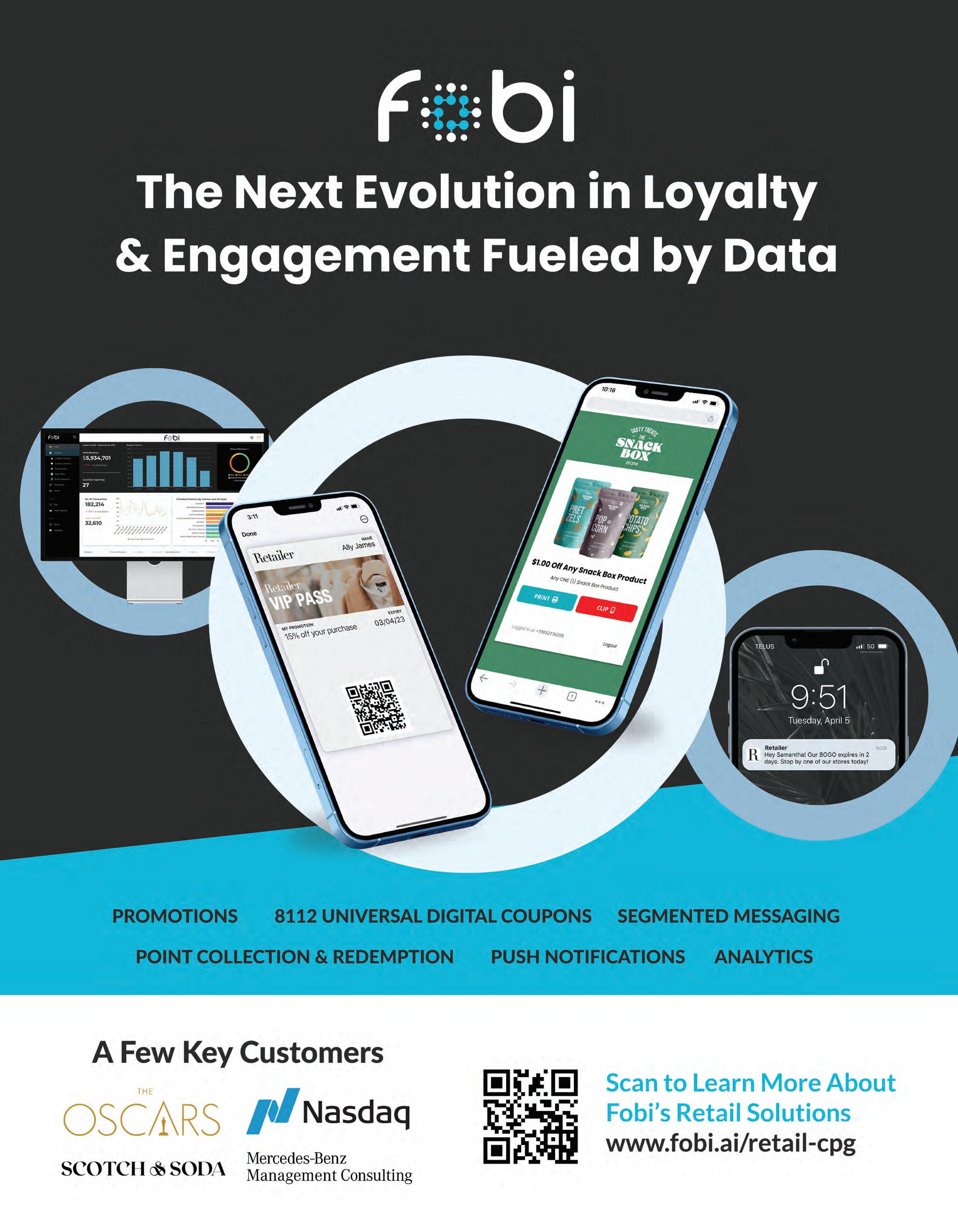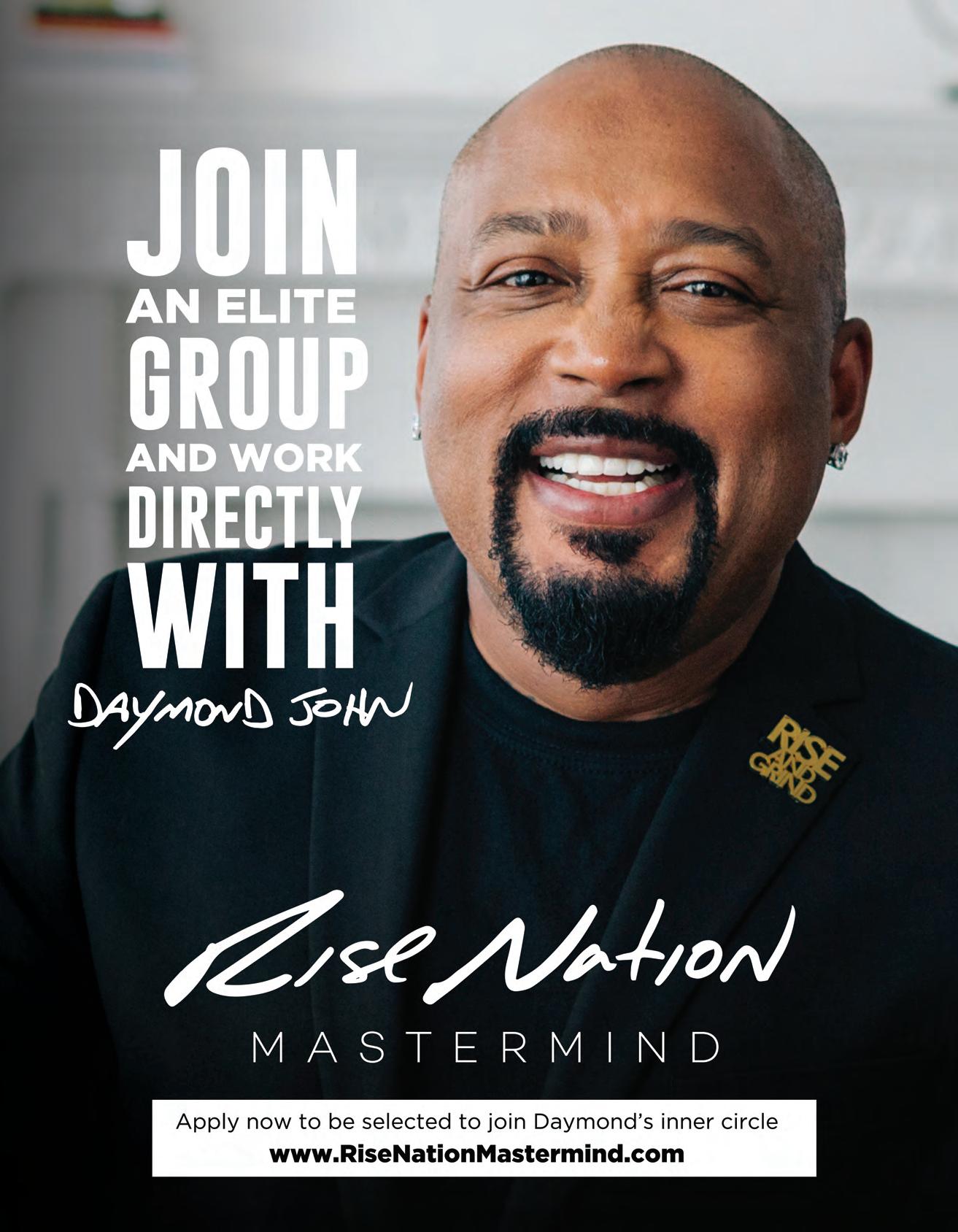INTERNATIONALRETAIL



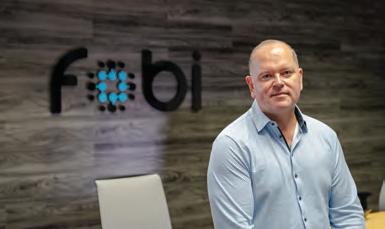

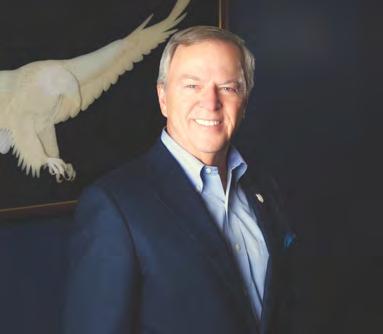
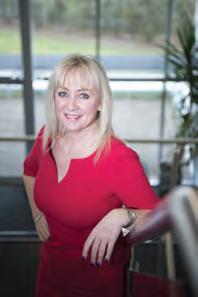




As Founder and CEO of International Retail Group, LLC (IRG) and Publisher of International Retail Magazine, Linda Johansen-James has created a platform for high-level celebrity brands as well as newer companies in need of exposure. An industry leading publication, IRG Magazine gives you real, front-line articles written by industry leaders.
Each quarterly publication brings readers real tactics and strategies for the ever-changing face of retail.

A little context for those of you that don’t yet know us - International Retail Group is a boutique international consultancy specializing in moving Direct-To-Consumer and digitally native brands into retail.

We have launched well-known brands such as Barbell Apparel, Blue Moon Hemp, Proactiv, Revlon, Hess Toy Truck, among others, into brick & mortar retail. We’ve also had the opportunity to test new concepts for a variety of entrepreneurs, including this issue's cover subject, my good friend and mentor, Shark Tank’s Daymond John.
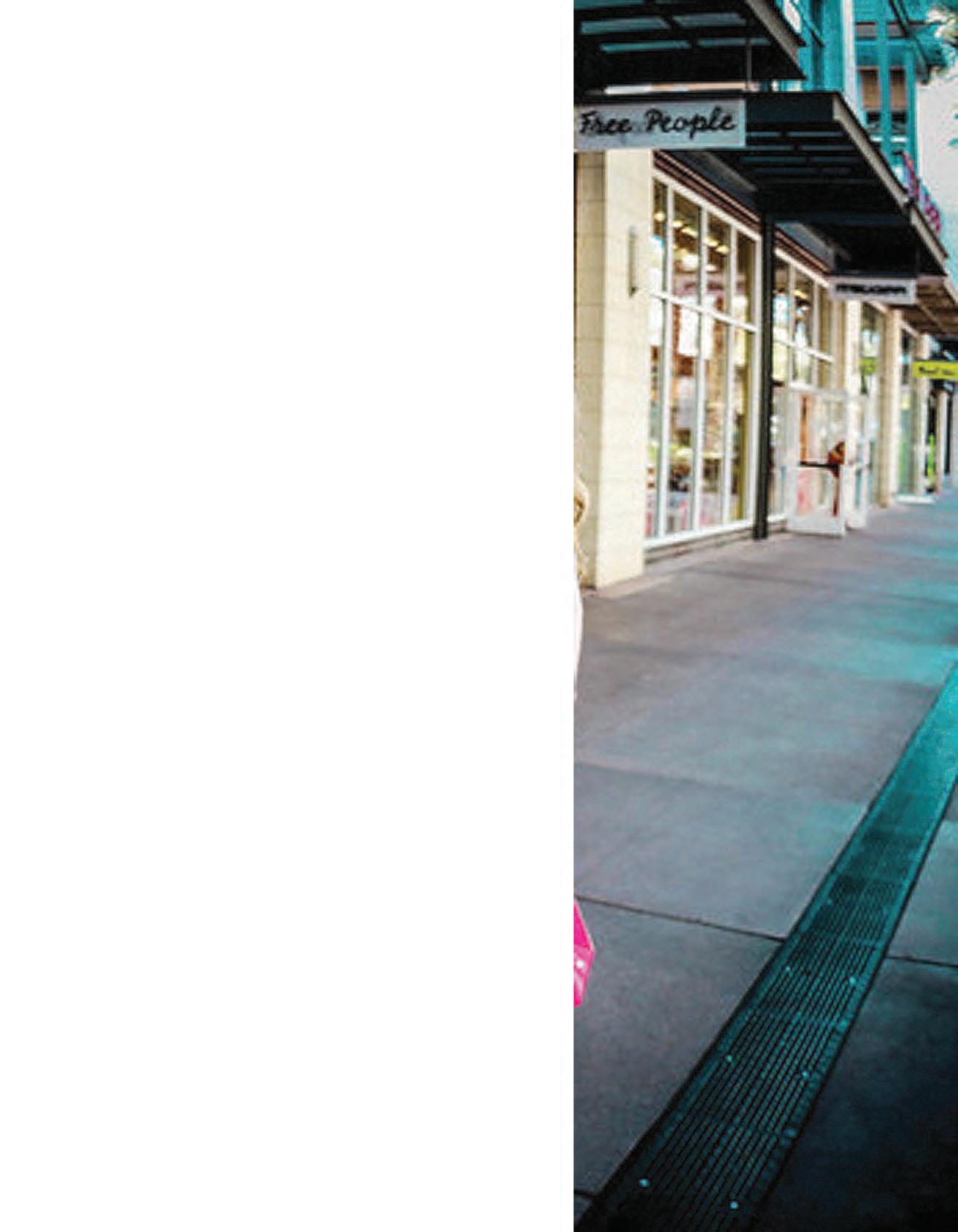
We LOVE bringing new concepts to market and helping entrepreneurs achieve their retail dreams.
With IRG Magazine, we seek out interviews with celebrity brands, internationally known movers and shakers in the retail industry, retail real estate professionals and brand managers making an impact in today’s market. We strive as well to introduce someone or something new! Each issue aims to provide insight and ideas from the best in the industry along with information you can use to improve your business today.
We look forward to providing more great content in the magazines to come so subscribe for FREE to receive this and future issues of IRG Magazine International Retail Magazine – International Retail Group (irgretail.com)
If you'd like to comment, be featured and/or advertise in future issues, don’t hesitate to contact us at marketing@irg-retail.com
Enjoy!
Linda Johansen-James Publisher, IRG MagazineHello and welcome to the 4th Quarter 2022 edition of IRG Magazine. Oh boy, do we have another good one for you!
We are beyond thrilled to feature The Shark Group’s Daymond John as our cover subject this Quarter. As many of you know, Daymond is a true success story. Having built his apparel business, FUBU, with only the funds from his mother’s mortgaged home, he and his co-founders experienced the true entrepreneur’s journey. They struggled, failed, tried again, struggled and ultimately persevered to build a multi-milliondollar brand. Today, Daymond’s focus is on balanceon health, family, giving back and sharing what he’s learned. You’ll love where he’s going next. In this issue we launch what will be a regular Poll column, One Question. The inaugural question is one that’s been bandied about for a while now but takes on a new mysterious wrinkle with the impact of COVID-19 pandemic on consumer behavior. We asked industry leaders – “Is Black Friday a thing of the past?”
One way to better understand the answer to that question is with good actionable data. Rob Anson,
CEO/Founder of Fobi AI, tells us about rising from failure and what led him to create the cutting-edge data intelligence company that allows retailers to unlock, leverage and monetize their data.
Speaking of failure, IRG Creative Director Brad Szollose spent time with Max James, best-selling author of The Harder I Fall, The Higher I Bounce. Max has a great story to tell both personally and professionally. In his book, Max talks about using failure as a learning tool - dusting yourself off and giving it another go.
In this issue we also hear from Audra Lamoon of LiveWire Performance, Linda Johansen-James, and Jeremy Walker of International Retail Group, on leveling up customer experience, we Pivot with Urban Ovations’ Bill Kistler and continue our conversation with Chris Igwe, Global Retail Authority! Our conversation with Chris included such great content we’ll be dropping it in bits beginning in the previous issue, continuing in this and future issues.
As always, get in touch with me or Linda JohansenJames to find out how to participate in future editions of IRG Magazine or email us at marketing@irg-retail.com.
Finally, this is a special issue for me in that it’s my first as Editor. Thank you to Linda Johansen-James for your faith in me. This is going to be fun!
Quilty Editor, IRG Magazine
Filledwithstoriesoffunnyand heart-wrenchingmoments… thisbookisamust-read!”
Hefoughtthroughtremendous disappointmentstosucceednot onlyinbusinessbutalsoto becomeaworld-class philanthropist.
MaxisanMVPinthe entrepreneurialarena.”
AmericanKioskManagement,andthework heandhiswifeLindaJohansen-Jamesputinto makingitabillion-dollarglobalsuccess.

Youdon'thavetolearnallthelessons byyourself.
TheHarderIFall,TheHigherIBounce willhelpyoutakeyourlifeandyour companiesandentrepreneurial venturestothenextlevel."
JackCanfield MotivationalSpeaker New YorkTimesBestsellingAuthor Co-Founderofthe ChickenSoupforTheSoul® Series SteveYoung NFLanalystforESPN NFLHallofFameQuarterback JaneSeymour Actress.Author.Entrepreneur.
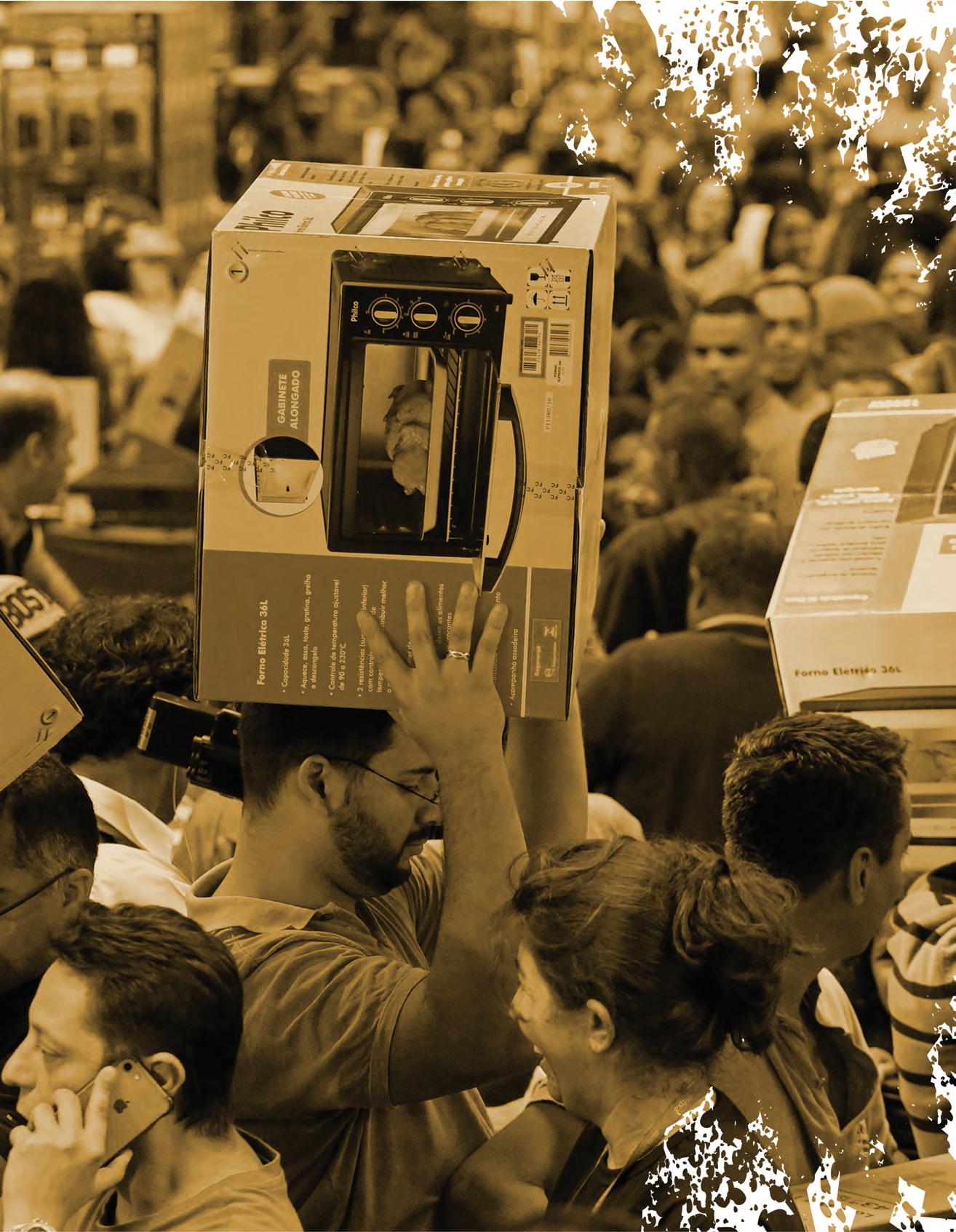
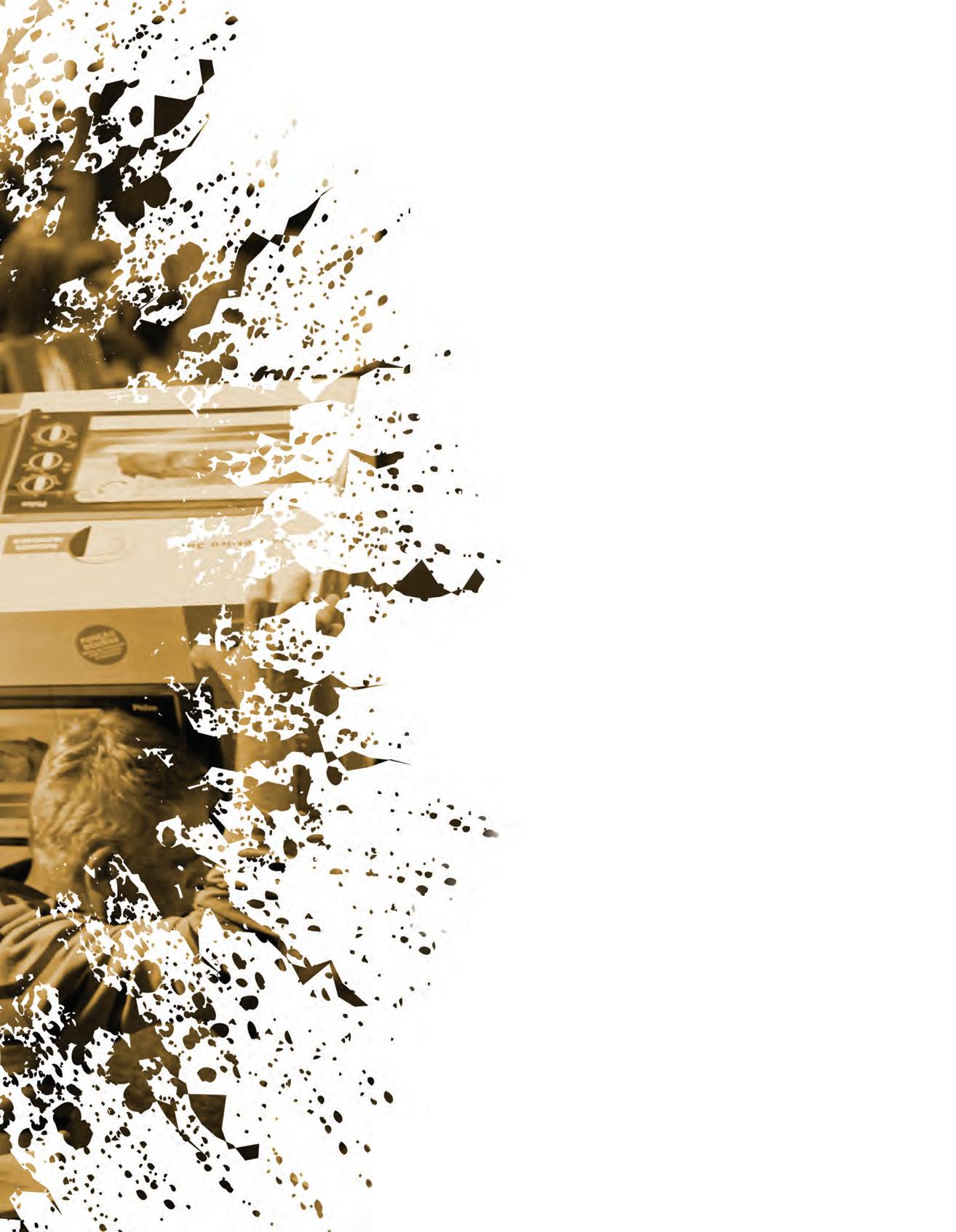
From a European perspective, Black Friday is still very much a growth area having not yet actualized its potential. While the adoption of Singles Day on 11th November in our market is taking on greater significance, Black Friday has become bigger in both volume and value than traditional peak trading periods, including Christmas and post-holiday sales.
As everywhere, the past two years of Black Friday activations have been negatively impacted by the COVID-19 pandemic and the share of online sales have surged. Importantly, we are seeing a sharp correction with consumers eager to come back to the store environment. This is a big opportunity to show how retail has evolved in the omni environment, and to remind consumers of the interactions they have missed when buying online. This black Friday, retailers need to adjust to the market using data to offer personalized and curated ranges tailored to specific needs. Combine this with specific in-store activations that can only be offered in physical retail, and you have a winning formula.
Without question, consumers across Europe love the feeling of getting a bargain and Black Friday will be one of the most important parts of the retail calendar for many years to come.
Matt Ferrara Retail – DTC adidasAfter attending many a Black Friday over the years, I believe that it will continue to be a thing of the present & foreseeable future. So long as there are some retailers offering ‘door buster’ promotions for a limited time on the day after Thanksgiving I am quite sure that shoppers will not only show up, but stand in line, as many have for many years running, to get their deal. It’s quite a phenomenon, really, to see generations of families coming together behind the excitement of Black Friday and sharing a special social moment & tradition that is driven by ‘good deal’s’ but fortified by our desire to celebrate the season with friends & family in a treasure hunt environment.
Bil Ingraham SVP, Business Development & Revenue CentennialWinter of Discontent for The United Kingdom? UK retailing is seemingly set for the harshest of winters as inflation, rising interest rates, eye-watering energy price rises and now much-anticipated tax increases tsunami across consumer confidence.
With new Prime Minister Rishi Sunak seeking to balance an estimated £40bn ($46.45bn) UK budget shortfall, indications are that financially-battered shoppers will further scythe personal spending. A “heat or eat” mindset has now permeated - and is crushing UK consumer confidence. The result? At best a highly challenging retailscape and at worst a retail wasteland following the next UK ‘Quarter Day’ on which many UK commercial rents fall dueChristmas Day 2022.
Sean Kelly Managing Director PR4Property
I think change is & will continue to switch up the norm in retail sales … so expect the unexpected.. & expect new sales to appear. Not all customers understand the point of Black Friday.. it’s just a sale to them… deals are found online all over, so whether they do or don’t hold the sales.. there will always be …. sales! Call them what you will!!
Audra Lamoon Chief Happiness Officer Livewire Performance Consultants“I do not think Black Friday, Small Business Saturday, and Cyber Monday will be irrelevant. Retailers will certainly try to enlarge the “Holiday Shopping” period; however, for many consumers, the day after Thanksgiving and the week after Thanksgiving are natural start times for the December Holidays. The day after Thanksgiving is an emotional trigger that is hard to remove, and therefore it won’t render the big shopping days obsolete. Rather as retailers try to increase the shopping period, the big shopping days may change over time.”
Chris Ressa Chief Operating Office DLC Management, Corp.I think in the current climate, Black Friday and Boxing Day are important opportunities for retail to make revenue. The focus on value is critical right now, with cost of living issues having a bigger impact on shoppers' spending than COVID. Retailers need to find ways to appeal to cash-strapped shoppers, and traditional sales will be a big focus right now. In the UK some retailers are starting Black Friday, saying it gives customers an opportunity to spread the cost of Christmas. Of course, it helps boost revenue for the retailers too.
Ian Scott Rethink Retail, Top 100 Retail Influencer 2022
Many retailers' strategies for the 2022 Holiday season rely heavily on discounts as they strike a compromise between these consumer concerns and return maximization. Holiday shoppers are worried about inflation and the overall economy. This has heightened their thirst for discounts and bargains.

Amazon and other online retail platforms have taken a huge bite out of holiday retail sales. Additionally, as a result of Covid, consumers have become more comfortable ordering online. While traditional sales like Black Friday will continue, they may even out with other company sales throughout the year. Sales like Amazon Prime Day are beginning to match in volume with these holiday sales. Traditional sales will not go away but will begin sharing their volume with the additional online sales that are created.
We believe developers must reevaluate the holiday rent structure. Rents have always increased for the entire months of November and December, yet we’ve only seen increased sales in the last few days of November. December shopping will always remain the highest sales month of the year because of the gift giving holiday, however, the mall is no longer offering the unique holiday shopping experience as retailers are choosing to close during these times. They will no longer have the justification for the increased rents without the traditional Black Friday and similar holiday experiences.
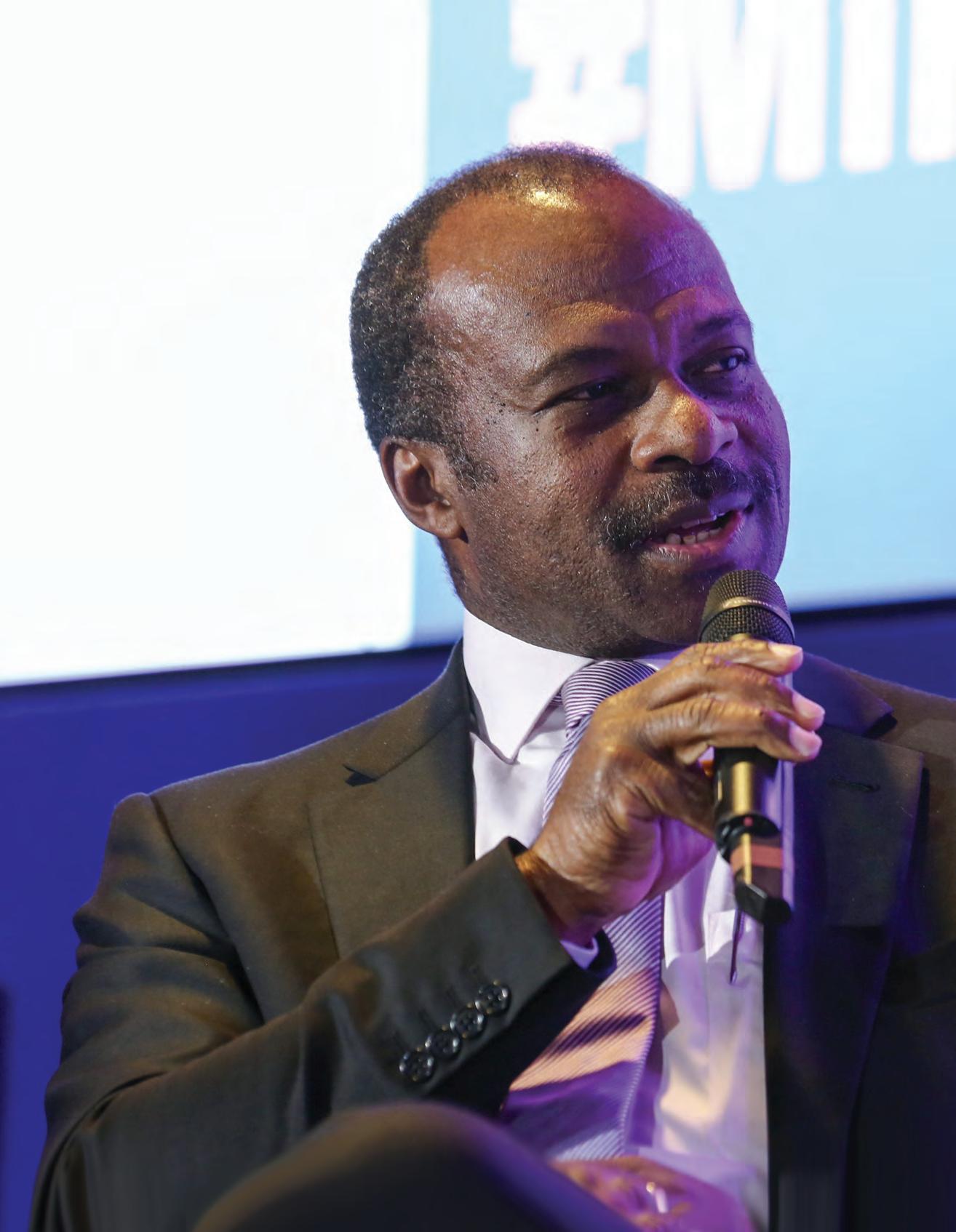

Chris returns to continue the conversation in the second part of our ongoing series.
For those who don’t know him, IRG Magazine is thrilled to introduce you to the multitalented and esteemed Mr. Chris Igwe of Chris Igwe International, an advisory for retailers and brands, and host of the podcast Global Voice of Retail – CEO’s Talk to Chris Igwe.
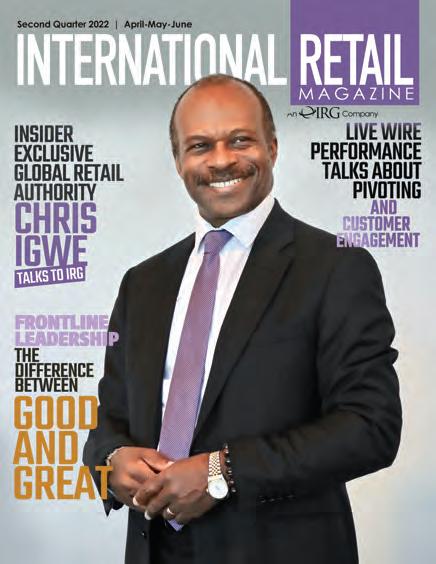
Chris was in Los Angeles earlier this year and took time to join Linda Johansen-James, Anita Blackford and Shannon Quilty in a farreaching discussion ranging from his personal and professional history to his current multihyphenate status as Retail Advisor/Speaker/ Educator/Podcast Host/Author/YouTuber.
For Part 1 of our interview, click here: https://irg-retail.com/ir-magazine-latest-edition/
The conversation was so rich and far-ranging that rather than cut for space, the interview is presented in multiple parts. Enjoy Part 2 below and look for future segments in future issues.
LJJ: Let’s talk about what’s going on inside of the retail business. What KPI’s are the most important for retailers to track and why?
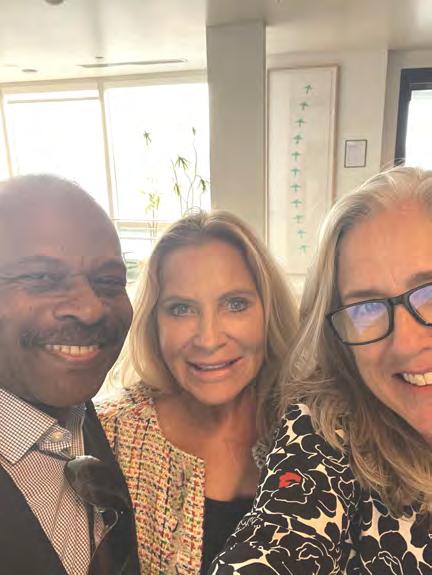
CI: Personally, I think it's less about the numbers as sales per square meter or square foot. You know, fashion retailers, amazed me. I could not get my head around the fact that they, whether senior executives or the store manager, needed to know by the hour the sales in the stores. By the day, I can understand.
I’d take clients on a road trip and they're on their phones all the time. They would say “You see those numbers? Fantastic.” There was this strange conversation between them, and I just thought to myself, do we really need to monitor performance to that level of detail? I don't think so. Merchants would argue with me on that. And that's totally fine. I respect that, but it's an energy/time thing for me. If you're doing that, I don't believe you're able
to see the big picture and the performance necessary. And then going back to the store itself, if something's not working, what is not working? Is it the staff? Is it an individual staff member? Go down to the nuts and bolts of why something is a problem, maybe it's just merchandise. The store didn’t have what the customer wanted. If you're using that information to analyze a problem and find a solution, that's a different thing. Nine times out of 10, when I was with them, it wasn't about that. It was just seeing the trajectory of the sales and the performance. What I put down as far as KPIs concerned, is about customer satisfaction and customer engagement. I believe that if we can get those two right, then you will see the sales in the store skyrocket.
If you take it to a bigger scale, obviously e-commerce, internet, the brand connection, social media, it's a holistic aspect to it. But just looking at the pure numbers, I don't think it makes any sense. And by the way, if I may, I know we may talk about podcasts later but in case I forget it, one of the things that CEOs on the investor side were saying, either on cameras or off, is that there's just too much information and data circulating around and it's extremely hard to get your head around it.
What they've been trying to get their teams to understand is that data is important, it's needed, but it's about the guts, the heart, the intuition to make the right decisions. It's about that instinctive nature of Is this right? Is this the right direction to go in? Is this something we should be doing? Then having a meeting where everybody can share their thoughts and ideas. So yes, have the data and information but can you distill it down for it to make sense in terms of what you're doing?
That is the key thing. For me, it's about those elements of let's get back to those who work in the store. Let's get back to what they do, how they do it and help them with the tools, knowledge, and insight that they need for the store to be successful. That’s what it should be, it's not a numbers thing. It's about the connection.
LLJ: I really believe that getting nightly numbers is a must. Not only for those who are not in the field daily but for the team. We have been having our teams call in or post numbers daily for over 20 years. If they have a good day, they love it and if they have a “not so good day” they don’t however, they all know what transpired that day in their stores.
AB: Being there in the store with your people, working with them hand-in-hand, and training them is one of the best ways to get your people to understand the culture and leadership of the organization.
CI: That’s a great point Anita, I totally agree. How do you think that can or should be done?
AB: I think it’s by being there. Going in and meeting with the sales associates, asking questions, working alongside them, making sure they understand they’re part of a larger team.
LLJ: Part of that, like Jack Welch said, is “walking the manufacturing floor.” He said, if you are not walking the manufacturing floor, then you don't know what's going on out in the field. I think that's why a lot of retailers struggle. Here's the deal. The numbers only tell part of the story, right? But the only way you're going to find out what's really happening is if you go into your stores and
you know your people. I required corporate staff to work in the field. They need to understand context. You have some CFO or your accounting people or your IT people, or your logistics people sitting in an office far removed from what the people out in the field are facing. I’d send them out to work in the field so they would understand that environment and the challenges the sales associates deal with every day. I used to tell my corporate staff; the on-site sales associates make it possible for you to get paid. Also, I spend probably 50% of my time in the field. Coaching, teaching, training, and selling! The team needs to know that you know and what a difference it makes if you show them, not “tell” them. I have worked open to close at our stores and clients’ stores sometimes for 2 weeks in a row. Is that possible all the time, no, however, if you do it just once or twice, they understand that you understand.
AB: I worked on a cart that we opened for a new client from open to close for a week. It totally changed my perspective on what the employees were going through and helped me understand what was really happening in the shopping center and with our employees. It wasn’t easy and I can tell you that it gave me a whole new respect for how our managers felt who did the same!
LJJ: I think we can all agree, nothing beats “walking the floor” for insight, ideas and, most importantly, inspiring the sales staff. In coming issues we’ll talk to Chris about social media, sales and negotiating techniques and doing your own due diligence.
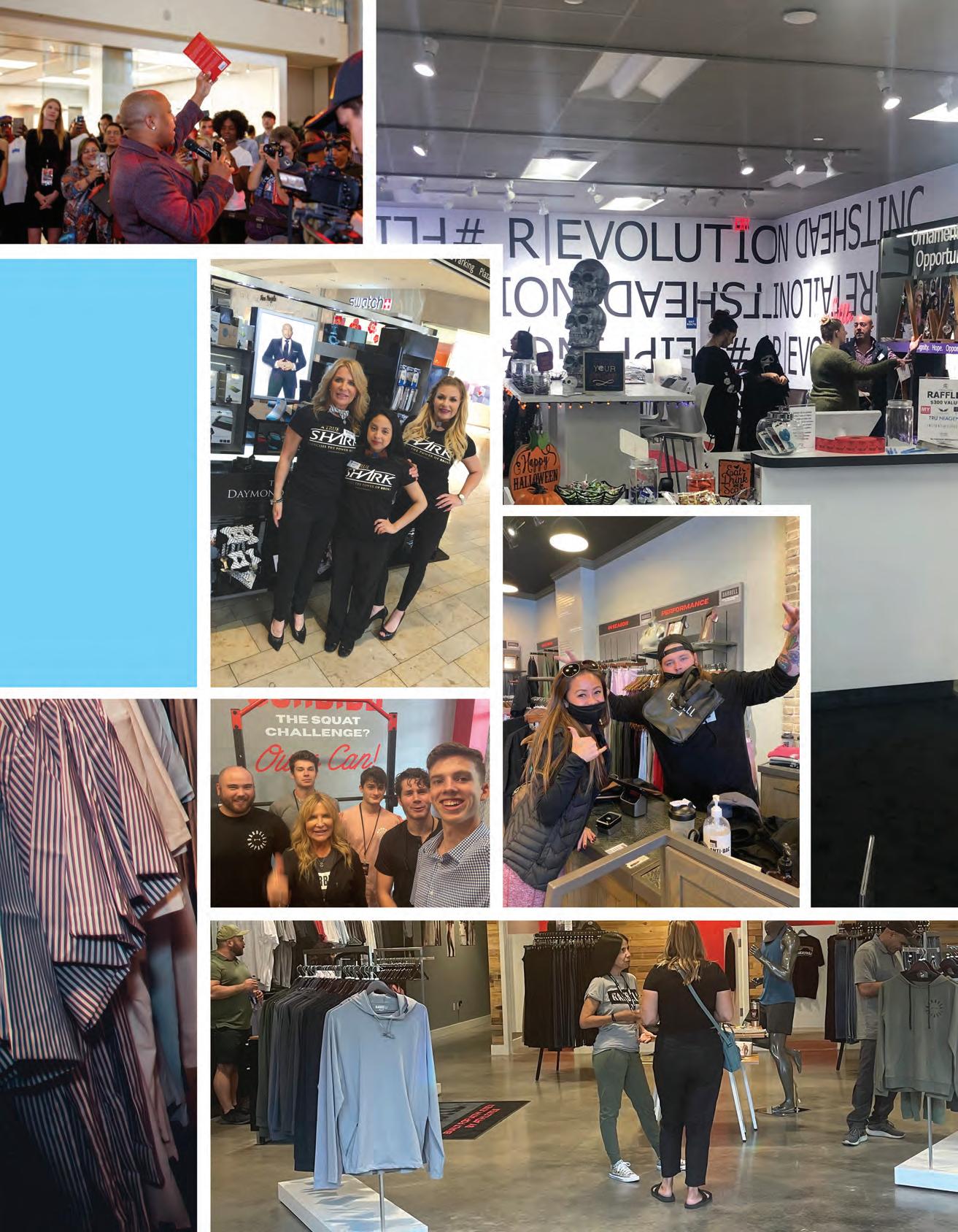 Lamoon LiveWire Performance
Lamoon LiveWire Performance

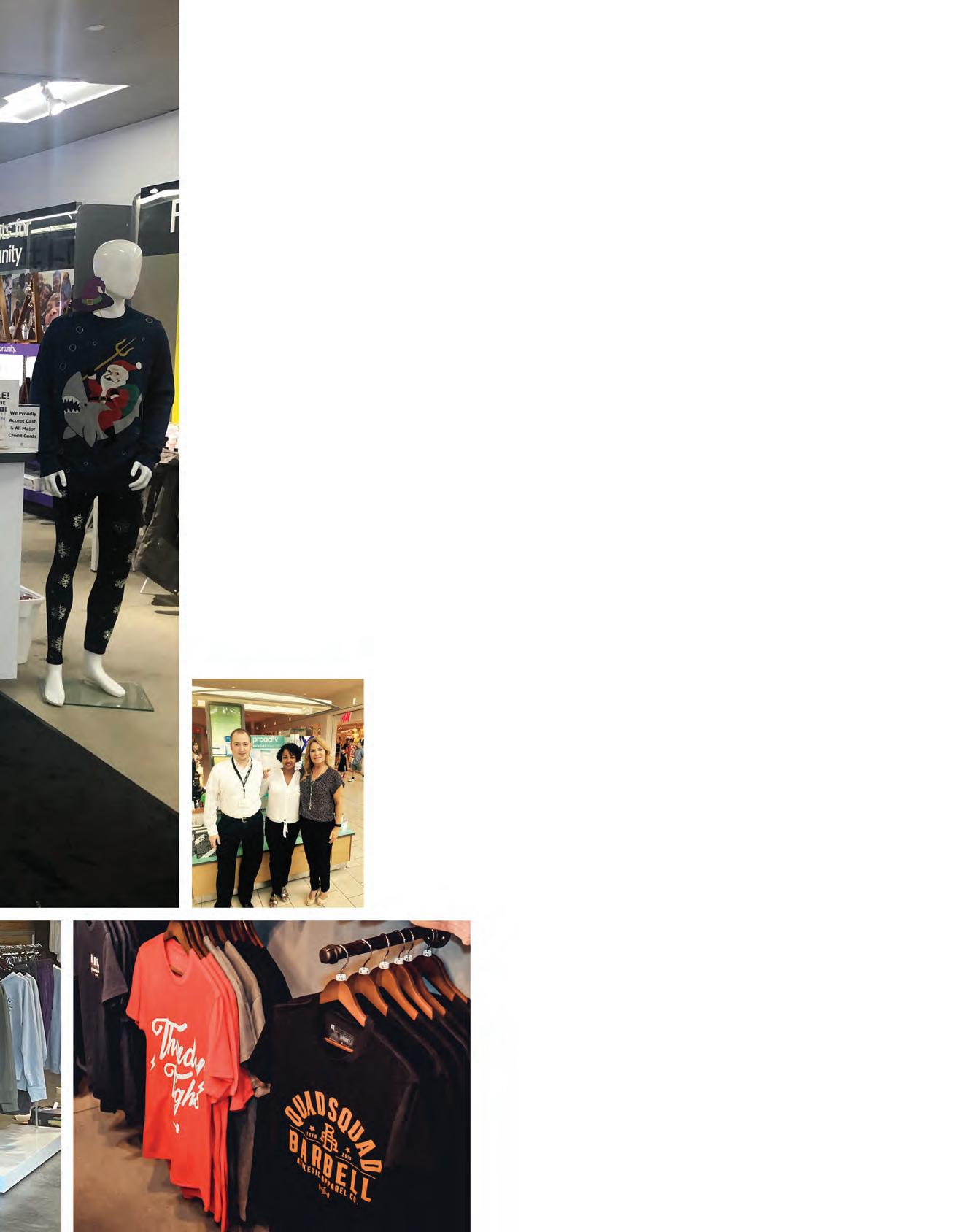
 Jeremy Walker IRG
Jeremy Walker IRG
 Johansen-James IRG
Johansen-James IRG
Jeremy: People have many options for places to spend their money; creating a relationship with your customers makes all the difference. The best way to understand your customers is to have direct conversations with them.
Audra: My customers are often developers so debriefs after training, mystery shopping our projects are critical as is the internal client survey. Both help us craft ongoing training.
Linda: ASK THEM! Whether through in-store, focus groups or via social media channels like Google, Yelp, Instagram or Facebook. Follow up on comments and respond.


Audra: Consistency builds brand loyalty. ‘You get what you give' so investing in learning and performance enables people to truly keep on top of their skills and help others too. Pushing the boundaries of customer experience is a forever moving goal post…which I love by the way!
Jeremy: Follow-up training helps keep the standards. I work with my staff one-on-one, asking about obstacles or issues. This allows me to evaluate training practices, adjusting as needed. Training should be ever evolving.
Linda: The more you train your people, the better they are at taking care of your customers.
Audra: Being genuine and using your personality to engage. There’s nothing better than seeing a person with passion engage with others, people, children, or pets…get involved, care and share the FUN!
Jeremy: Customer service is the most important part of the experience. You can have the best location and most spectacular product, but, if you have terrible staff, it falls apart. Investing time in your staff ensures they are trained and give world-class customer service.


Linda: I am a proponent of providing a meaningful script that leads to sales success. If you are training your team and they are using their own personalities, a script can make the difference.
40% of people leave their job in the first year due to a “lack of training”,
Jeremy: Set goals and create steps to obtain them. If your goal is sales, evaluate the process. Study the moment a customer enters the store until they leave. After you study the process, create a standard flow. Then role-play, role-play, role-play!
Audra: We start by understanding the purpose of the company – knowing that truly cuts down on the unnecessary box ticking training. Your people need effective communication, hospitality ethos and leadership.
1. How do you know what your customers think?
Linda: Start with your team. What type of training would help them be more successful in their jobs, engage them and inspire them to grow with the company? Survey your team and put together steps that ensure everyone understands expectations.
reasons, but ultimately brand awareness and recognition.
Audra: No. Linda and Jeremy are the experts here but, in my experience, wherever there are people, property, and service, the training should be of the same high quality.
Linda: No, everyone needs to be trained the same regardless of whether you're open two days, two months or two years. It's your brand - Make it shine!
Jeremy: Many times, I've sat with managers going through team member reviews and realized we had struggling employees. These employees were overlooked because the store overall was performing well. The famous saying is that “you are only as strong as your weakest link”. Keep an eye on the individual team members’ performance as well as the performance of the store as a whole.
Audra: I recommend my clients NOT do a yearly review - It’s too long to wait! Make the reviews shorter and more frequent and have them in a fun place…coffee shop or space that can’t be interrupted.
Linda: Your employees should be getting constant feedback, not just at review time. Consistent, valuable, actionable feedback is key.
90% of retailers say they have difficulty hiring with staff shortages leading to poor customer service and lost productivity.
Jeremy: Developing the strengths of your employees is what makes the difference. You must invest time in your staff who are the face of your company. Take care of your staff and they will take care of your customers.
Audra: Change is inevitable but the one thing that will never go out of fashion is personalized, genuinely friendly service. They will always come back for that!
Linda: Everything flows from the top down. People want to be held accountable and to do a good job. "Inspect what you expect!" and train your team for success
For more information: visit www.irg-retail.com
Jeremy: No, there should be no difference in training. Pop-ups are used for a multitude of
5. How do you track your employee’s performance and why is this important?
6. Would you suggest different training protocols for pop-up stores?
We live in a world where real time data driven decisions are the key to profitability and long-term viability. Fobi has transformed the world of retail when it comes to big data, by architecting a plug and play solution that enables retailers to


unlock, leverage and monetize their data with Fobi’s data intelligence and customer engagement platforms.

We were thrilled to sit down with Rob Anson, CEO/Founder of Fobi AI. Fobi is a cutting-edge



data intelligence company that turns real-time data into actionable insights and personalized customer engagement.

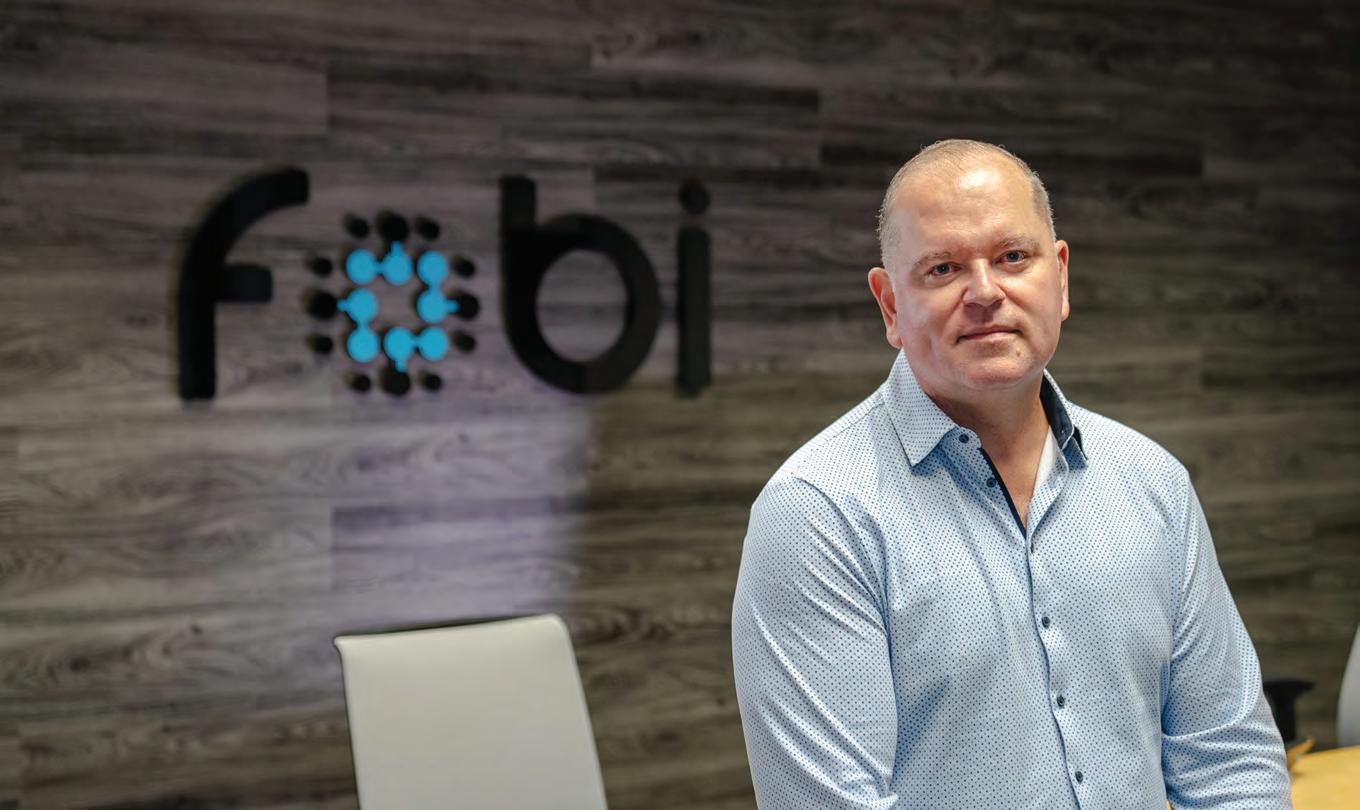
it’s a pleasure to catch up with you. Look how far you’ve come in the last 6 years since we met! Have you always been an entrepreneur? What inspired you to get into the data business?
Rob: I've always been an entrepreneur and a problem solver looking to where the world is going next. One day, I was playing golf and met a couple guys from Nielsen, the large data aggregation company. I asked about their jobs, the company, the obstacles within the business. Both confirmed challenges accessing and understanding data, especially with regard to independent retail channels. They had some data but not in a useful package. I understood and they concurred that a way to gain access in real time to store level data across that fragmented retail channel would be extremely valuable, though they believed it to be impossible. I took the challenge.

Six months later we had a device known as Fobi. Our Fobi device and APIs plug into any
retail point of sale system enabling us to gather the transactional data that’s then centralized, visualized and then able to be utilized and monetized by our customers.
Retailers don’t necessarily need more data, they need ways to unlock and monetize the data they have. We have created a data driven, segmented, personalized and automated approach to customer engagement in real time. If I know when Bob is at the till checking out, I can customize and personalize the promotion just for him. Bob bought winter boots, a winter coat and we thank him for his purchase. Then we tell him we’ve loaded promotional vouchers into his digital wallet pass member card on his mobile phone that he can use online or in store for a scarf or those gloves he liked.
LJJ: Personalized service - The ease of buying which leads to higher customer satisfaction and more sales and profit.
Linda Johansen-James (LJJ): Rob,Rob: Exactly. How do we help these retailers get the data they need, cleanse it, parse it and then create that one-on-one engagement with customers that creates a better customer experience and drives more revenue. That is my passion.
LJJ: Using the data properly, can you customize the communications your clients send to their customers? How does Fobi do this?
Rob: We can see how often you've shopped, where and when and then deliver engagement based on that. We track all of the shopper data and touchpoints in what we call the Fobi Data Exchange providing an integrated CRM for the company's marketing department to use to send out segmented and personalized text messages and push notifications through our digital wallet pass platform.
LJJ: It is all about simplicity for the employees and the customers. People don't have the time or patience to sign up for a loyalty program or even get a receipt. Tell us how Fobi makes the process painless?
Rob: We can onboard people from any channel, social, website, email, ads, and of course QR codes. For example, Linda, you scan a QR code in-store to sign up for the loyalty program and download your loyalty wallet pass, so here's 20% off your next purchase. That discount gets added to the loyalty pass in your digital wallet which you scan on your next visit. Simple and easy.
LJJ: Upselling and cross-selling based on the customer’s actual buying habits not on the retailer’s need to move merchandise. What a great tool for sales staff to increase sales and customer satisfaction!
Rob: Knowing where your customer shops in the store, what time of day they come in and where they spend time, you can send personalized texts and notifications directly to them at that time. There’s incredible ROI with this level of personalized, real-time engagement.
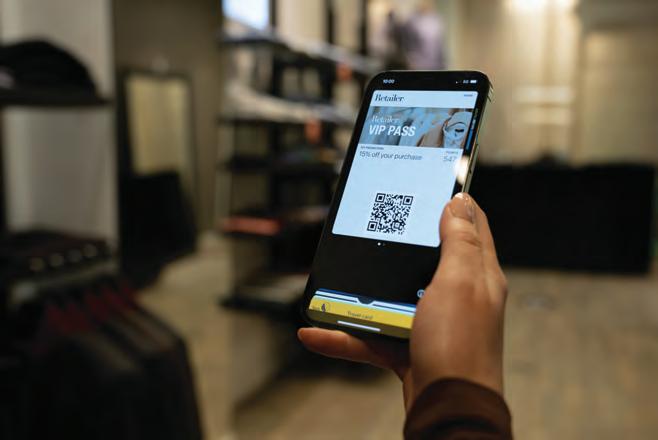
LJJ: This would be very valuable to pop-up stores testing in retail. How easy would it be for them to sign up?
Rob: There's a small setup fee and then you can create your own passes. You’re only billed for the months you’re live and for the passes that are active, so it’s ideal for short term implementations. We also offer fully managed services with dedicated teams working together with the marketing departments at some of our key customers such as the Oscars, the Nasdaq and some of the largest insurance companies in the world. We build out very robust integrations across all systems to ensure interoperability for some of the largest enterprises in the world.
I've looked at the challenge of retail from the perspective of a problem solver and visionary. My goal from day one was to level the data playing field for bricks and mortar operators. The world is going 100% mobile and digital, like it or not. If you don't embrace technology now, you'll be completely irrelevant in the next three years.
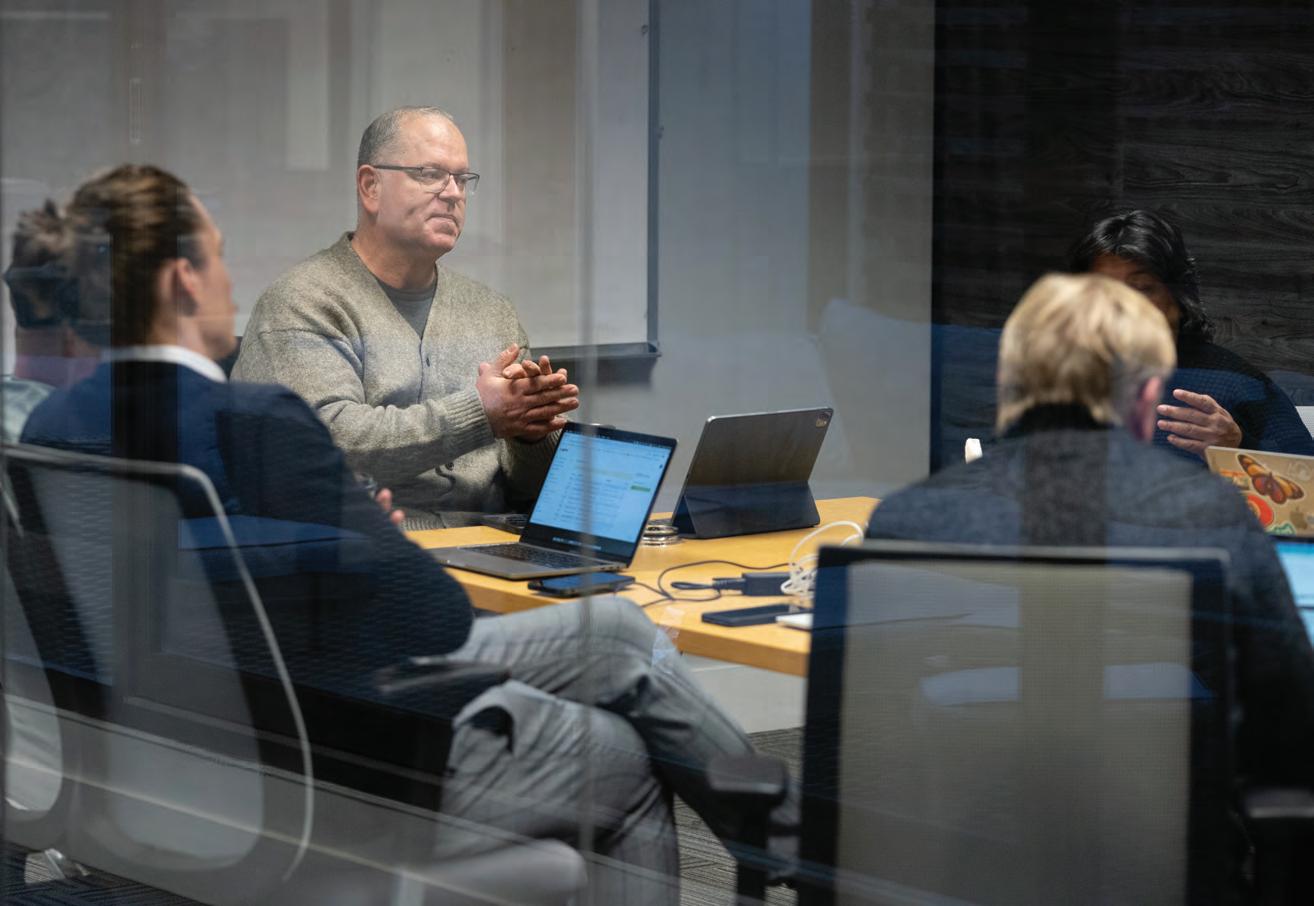
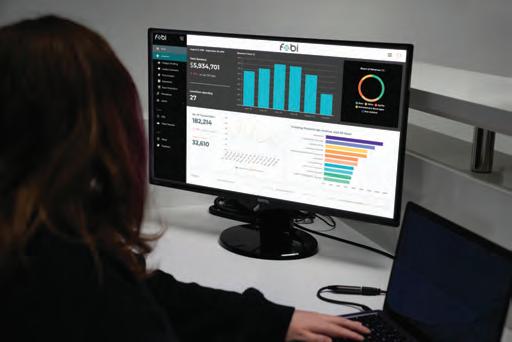
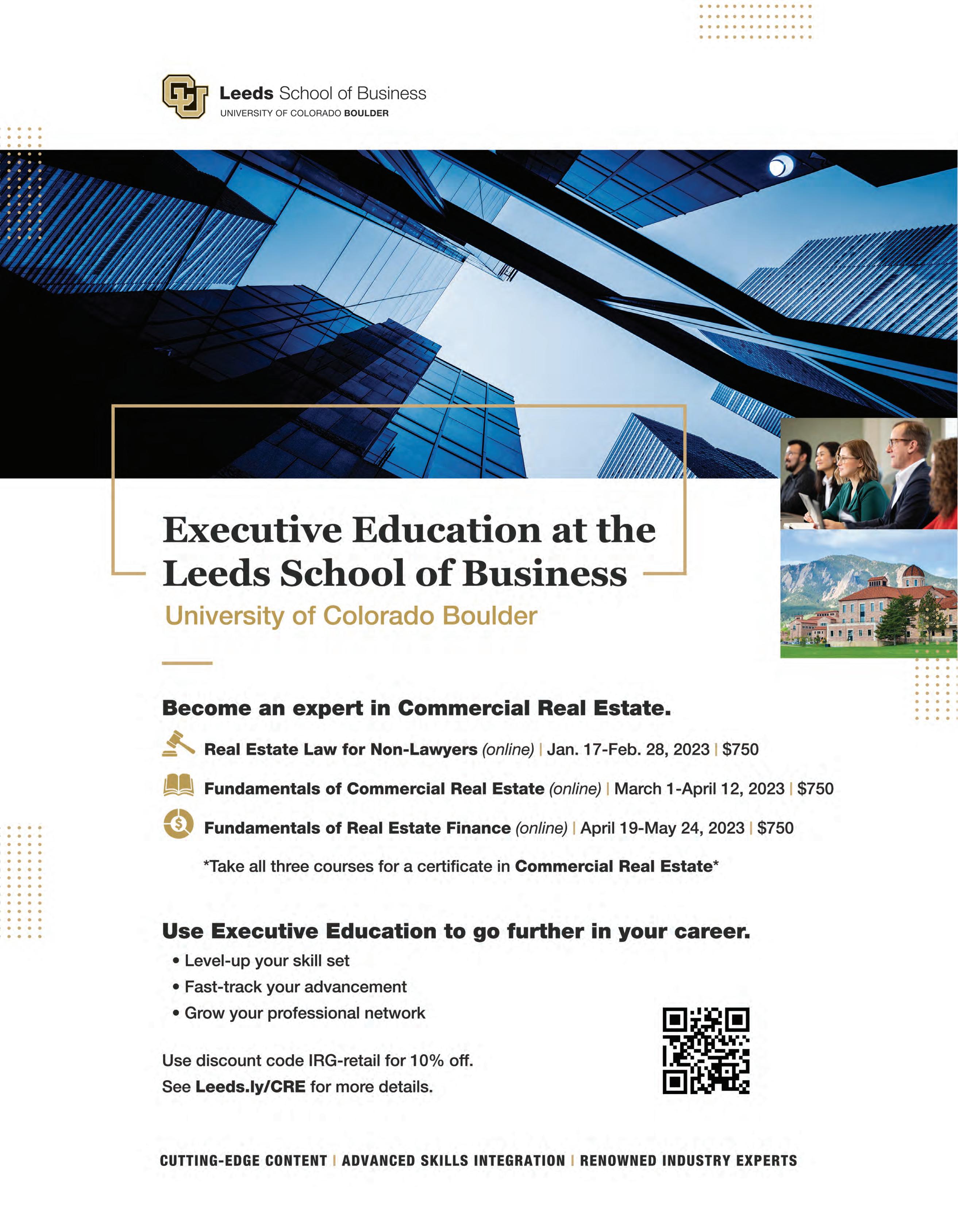
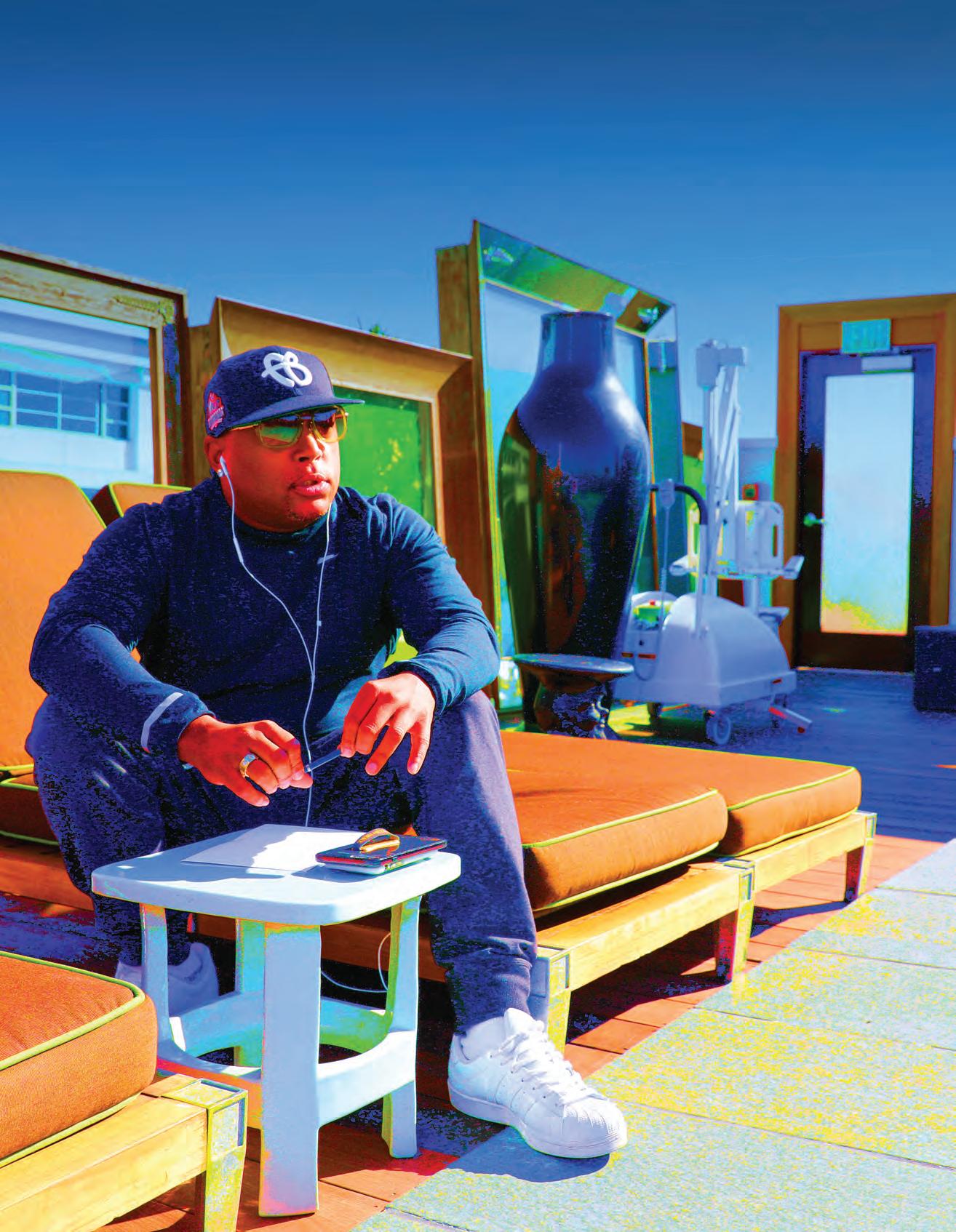
 Daymond John takes a moment to relax.
Daymond John takes a moment to relax.
Daymond John and the story of how he built the iconic FUBU brand on his mother’s kitchen table is legendary. From those humble beginnings, with perseverance and hustle, he’s built a multi-million-dollar business empire and become one of the most respected voices in entrepreneurism. Whether through his many books, speaking engagements, consulting or over the 7 seasons of Shark Tank, Daymond has always been about sharing knowledge and helping others achieve their dreams. Linda Johansen-James and Shannon Quilty spoke with him about business, giving back and what’s driving him now.
Linda Johansen-James (LJJ): Daymond, one of the things that was and is always really thrilling for me is to retell how we met. May I tell it?
Daymond xJohn (DJ): Please do.

LJJ: My Assistant announced someone was in the lobby wanting to see me. She confirmed they didn’t have an appointment, but she assured me I was going to want to take the meeting.
I remember as you walked through the officeI was and am such a fan – you were like a rock star! Shark Tank was my favorite, favorite show. It's where we heard so much about new businesses. When I got the opportunity to meet you, it was probably the best day of my professional life! I've learned so much from you through your books, Shark Tank and, of course, the legendary story of FUBU. It was such an honor to be included as a chapter in your first book, The Power of Broke and then to work with you launching the first Daymond John Pop-Up. Thank you again for taking the time to speak with IRG Magazine today.
DJ: It’s my pleasure, Linda!
LJJ: Let’s get started! Outside of your commercial business endeavors, you spend a great deal of your time working in the service of others. One of your many endeavors, Black Entrepreneur’s Day, just had its third live event at Harlem’s leg endary Apollo Theater. Focused on providing grants and professional expertise to Blackowned start-up businesses, it was incredible to watch! There were so many great ideas and so much joy! What inspired Black Entrepreneur’s Day and why is it so important for you to help other Black entrepreneurs launch their busi nesses?
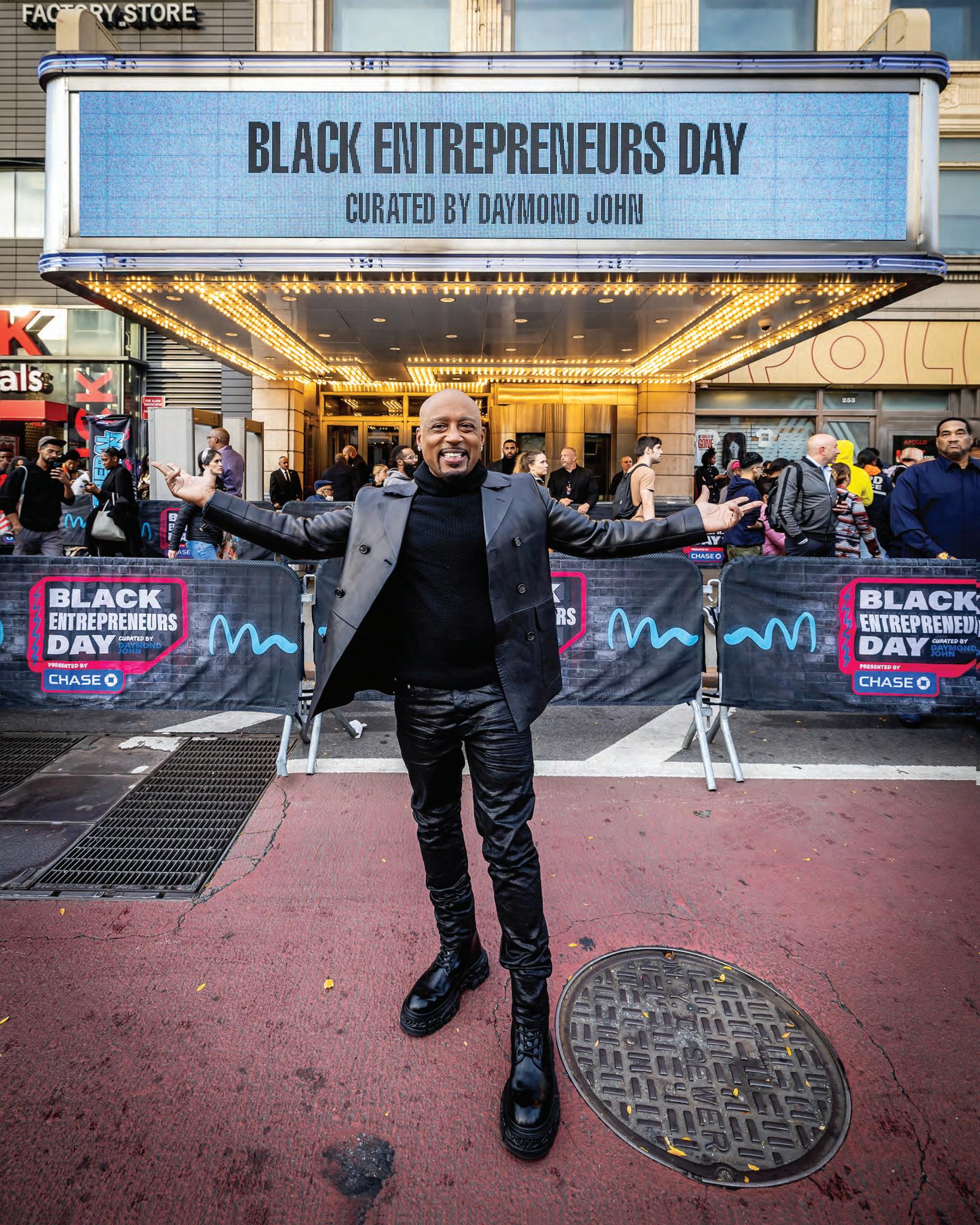

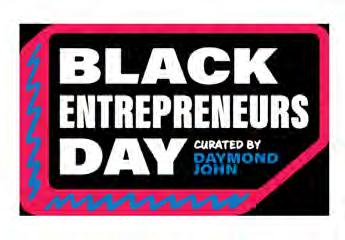 Daymond John preparing to open The Annual Black Entrepreneurs Day at The Apollo Theater in Harlem, NYC.
© Photo courtesy of Medium Rare & The Shark Group
Daymond John preparing to open The Annual Black Entrepreneurs Day at The Apollo Theater in Harlem, NYC.
© Photo courtesy of Medium Rare & The Shark Group
LJJ: The most successful brand you invested in through Shark Tank was Bombas, a missionbased retailer. Are you looking for more mis sion-based brands.
DJ: Always. However, I don't just look for that because some people have brands or compa nies that don't give back directly; they may take a different route. So, it doesn't necessari ly need to be mission-based, but I prefer to have that element.
LJJ: You recently partnered FUBU with Marvel. The sweatshirts, t-shirts and the rest are so cool! Can you talk about that a little bit?
DJ: Disney and Marvel have always been very inclusive companies. Marvel was going through challenges and identified they wanted to do more in the diversity and inclusion space. They called us and asked how we could work togeth er to attract more talented minorities. Marvel on its own has always been ahead of it. The Marvel Universe doesn't have a color, gender shape, or size, right? We’re excited to partner with them.
LJJ: I wouldn't be an entrepreneur business owner if I didn't say put it out there –Have you considered doing your own FUBU stores? We’d love to help you do that.
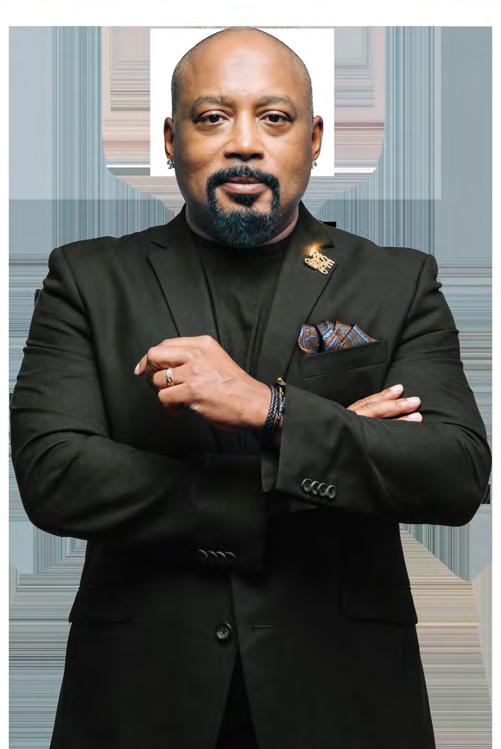
DJ: Of course! Right now, we're let ting the dust settle. On one hand, retail is suffering. On the other, retail is great. We’re looking at this thing closely every day. I've learned when you don't know what to do, pause. That’s what we’re doing now. The trick is not to wait too long. I wish I had a better answer.
LJJ: Well, I think that's an okay answer in today's retail climate.
On another note, I just ordered Mo’s Bows: A Young Person’s Guide to Startup Success by Moziah Bridges, as a gift for my grandson. Mo’s story is inspiring, and you’ve been a big part of it since his appearance on Shark Tank when he was just 11 years old. Rather than make an of fer to invest in his business, you offered men torship. Why did you choose to mentor Mo rather than invest in his business? How do you feel about where he is today?
DJ: He reminded me of my mother and me. As I wrote in The Power of Broke, the biggest chal lenge for many companies is they raise money too soon or give away too much of their com pany at an early stage. From where he was, giv ing away that amount of his company would have been bad for him. I also wanted to block him from taking another Shark’s money. I wanted to give him somebody to lean on who knew what he'd been through. So that's why I did it and I'm very happy that I did.
LJJ: Shark Tank is in its 14th season and now filming live, which I love! Have you seen a change in the entrepreneurs coming on now? Are they more prepared with better business models?
They're savvier, definitely. You know, Shark Tank’s a great reflection of the time. The people who come on now have been through fire. They can't come on and say before the pandemic, I was screwed up and after the pandemic. I'm really screwed up. It’s more like, I pivoted during the pandemic, I'm doing great, or I started during the pandemic and I'm doing great. You shift through it all and find the hardworking people who have figured it out.
SQ: During a recent in terview you were asked your thoughts on how Elon Musk might navi gate the cultural chal lenges at Twitter. You smartly spoke of something
Linda and I keep coming back to in our work, and that is the importance of a positive work place culture in the success of any business. Can you expand on that?
DJ: When people understand that they can be part of a culture, part of making change, part of challenging themselves, they're really excit ed about it. When someone goes to work every day excited and engaged, you're going to get great employees and you're going to be able to scale that business.
LJJ: That is so relevant to the retail business. Retailers are really struggling these days for reasons mostly outside of their control. What they can control, however, is the culture of their business.
LJJ: Have you invested in any new companies you can share with us?
DJ: I love Buckle Me Baby. You know, in busi ness there are only two things you do. You ei ther solve a problem or bring joy to a person and you get paid for both of those. Hopefully, you're bringing joy and solving a problem at the same time. Buckle Me Baby does both.
LJJ: What’s next? Is there another book coming?
DJ: Yes. This one has a different spin. It's a dren’s book called Little Daymond Learns to Earn Little Daymond wants to buy a poster of his favorite singer but doesn't have any money. He gets his crew together and they learn how to earn through business.
You know, up until 5 years old, a child will have certain heroes - Peppa Pig, Daniel Tiger, Thomas the Train. After 5 and until about 12 years old, however, no heroes. No Mr. Rogers, no Electric Company, no Steve from Blue’s Clues, no Conjunction Junction What's My Function? From 6 to 12, there is no one person in popular culture they look up to. I'm the only African American on a major network for 14 years that didn’t come for music, sports, or politics. I’m familiar from having been in living
rooms for the last 14 years. Now, with a 6year-old daughter, all my programming is on teaching Minka and other children her age how to understand taxes and credit, how to save money and make money, solve people's prob lems, be of service, be kind and respect their parents.
LJJ: I love it. When is does it come out?
DJ: It’s scheduled for March 2023 and it’s juBalance.st the beginning. We're reaching out to educators to help us navigate these worlds . Bombas Socks or another retail concept may or may not work. If they don't work, I will cer tainly wish they had. Education, however, keeps giving. I’m not going to keep what I’ve learned to myself. This is my journey for the next at least 10 to 15 years. This is what I'm excited and passionate about.
LJJ: This is your legacy, Daymond.
DJ: Yes, I suppose it is.
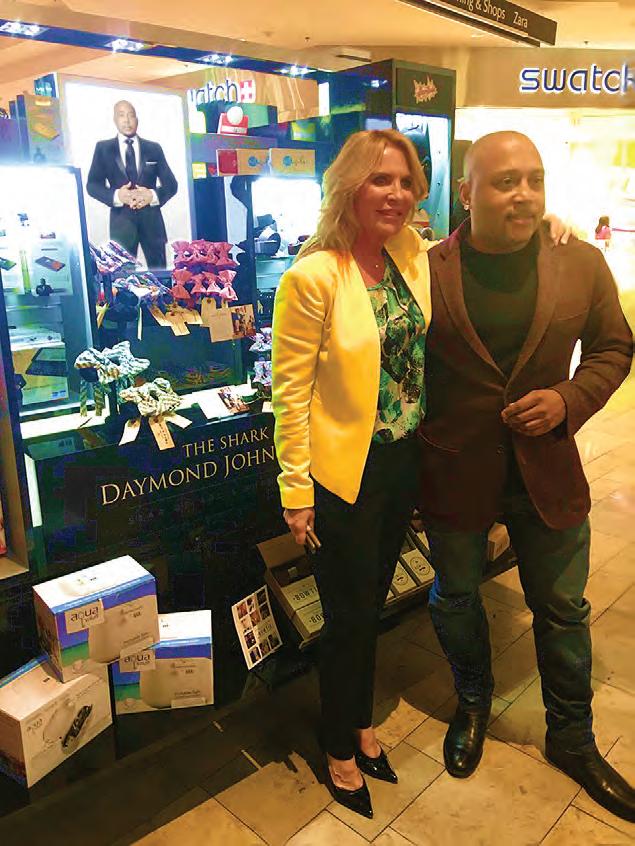
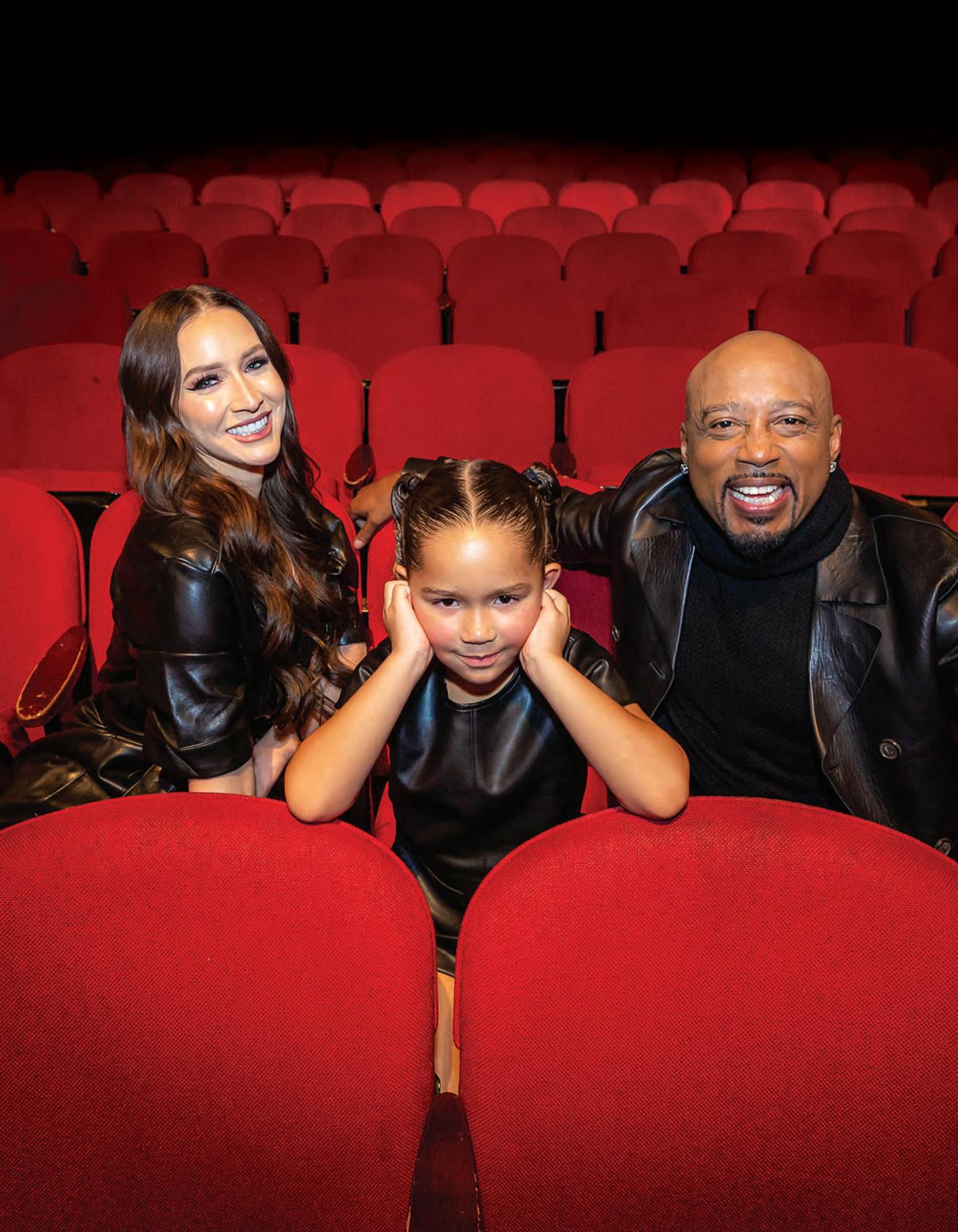
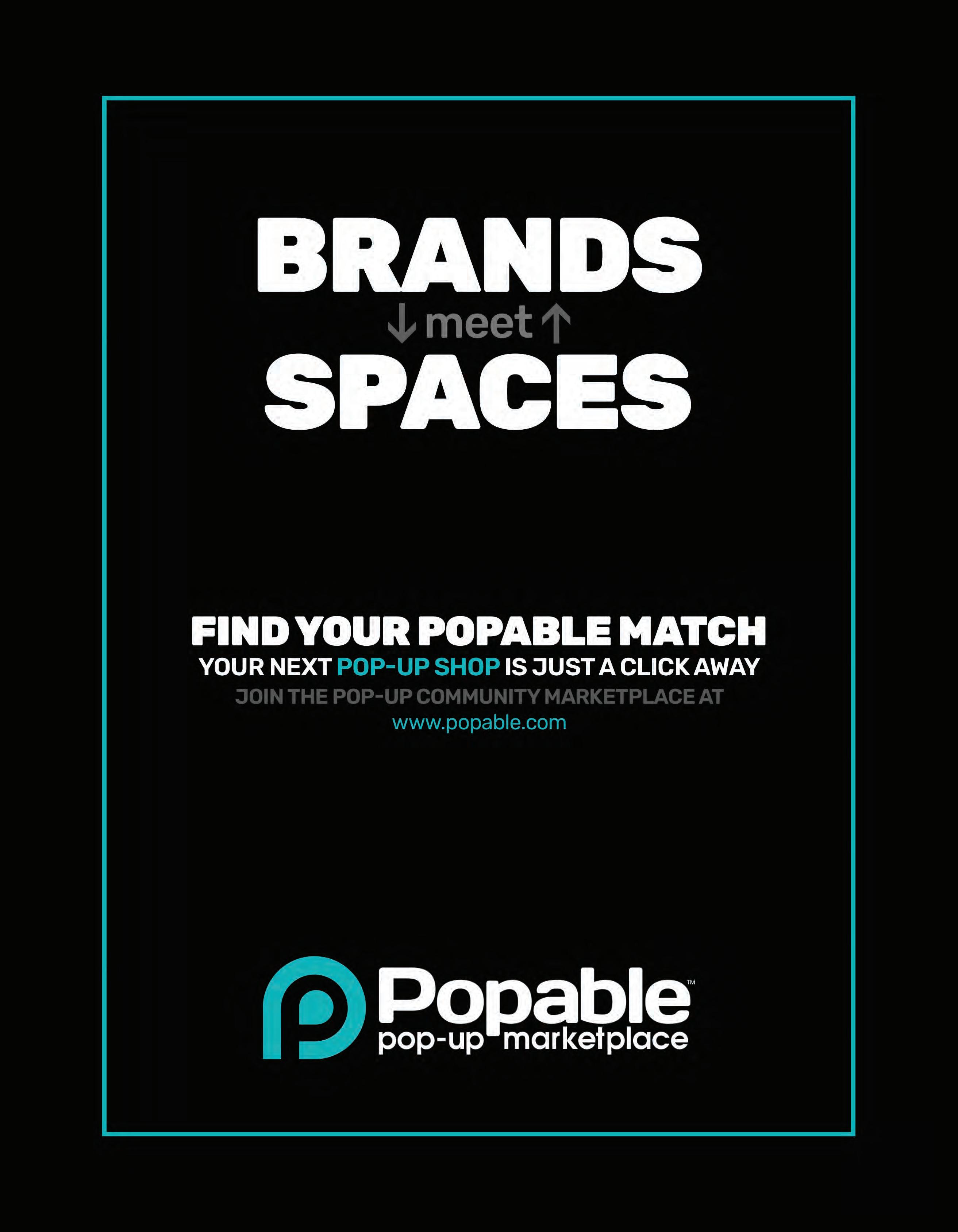
IRG
with Max James to talk about failure, success, working with his wife Linda, and his new business memoir, The Harder I Fall, The Higher I Bounce.
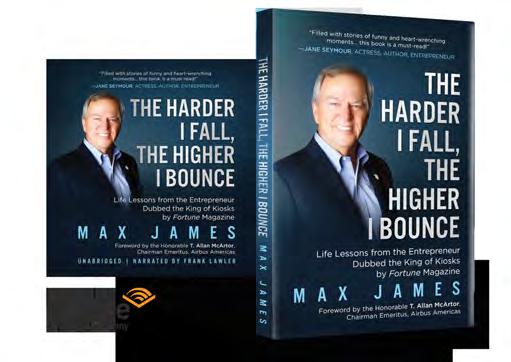
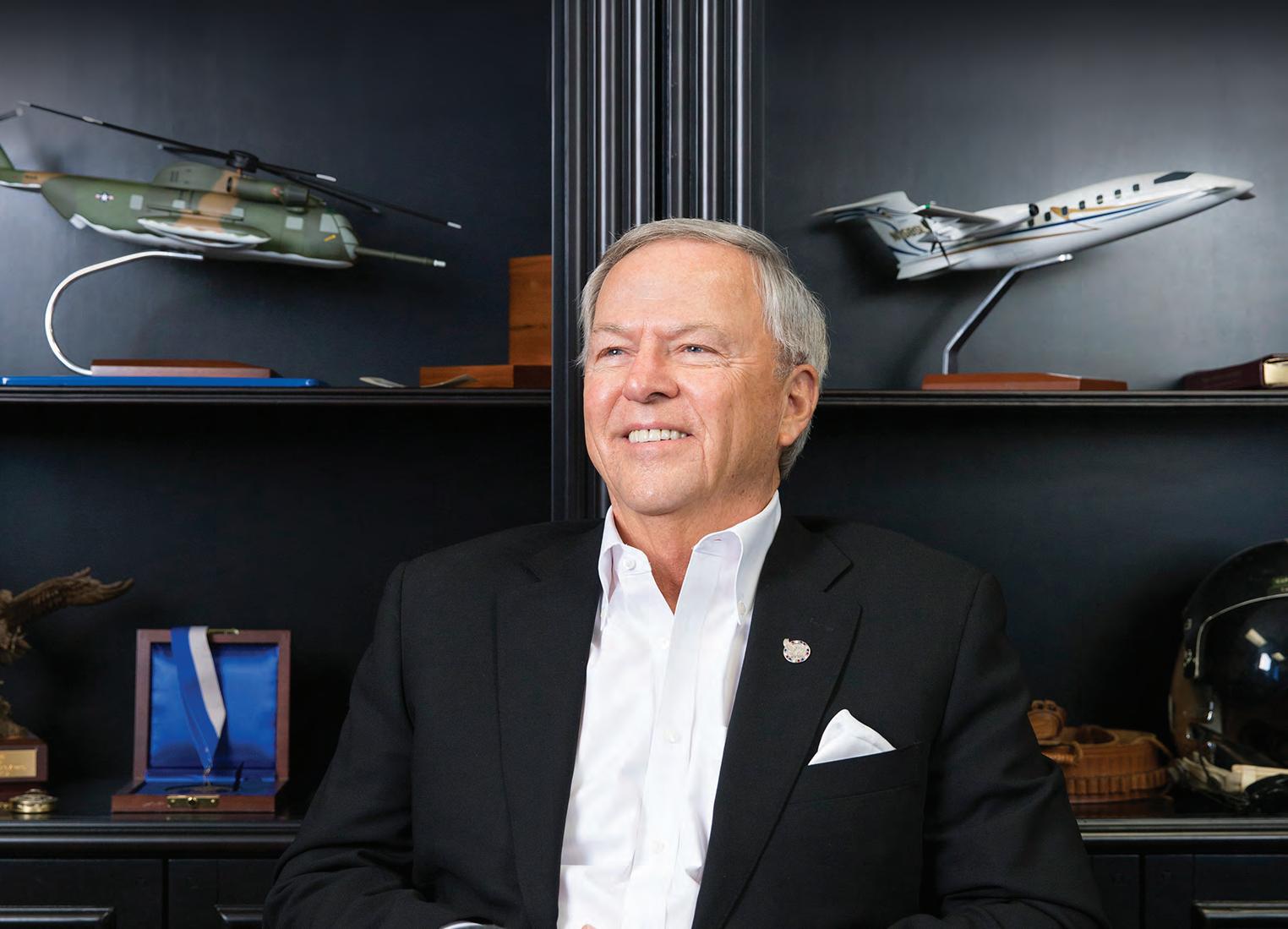
To say that I was a bit intimidated to meet Max James for the first time is an understatement. A former helicopter pilot, twice shot down in Vietnam and then rising to the top of the business world, he personifies the term ‘True Grit.’
Our first meeting over lunch should have been an hour but turned into 4 hours of some of the best stories I’ve ever heard in life and business. For this interview, I decided to ask him a set of questions he doesn’t normally get asked.
You graduated from the Air Force Academy, served in Vietnam, and earned a postgraduate degree, MBA. With that kind of background, you could have had your pick of executive positions. What made you choose to become an entrepreneur?
I went to Stanford University to study business, and the case studies we were being taught enthralled me. It was the turnaround stories that grabbed me. The ability to overcome failure after failure in order to build a bulletproof business was what excited me.
You started your first business then as well, am I right?
Yes, it was Executorial Services – kind of WeWork of today. It failed miserably. But after that, I was hooked. I was an entrepreneur.
You’ve owned dozens of businesses, but what was the secret to your extraordinary growth at American Kiosk Management?
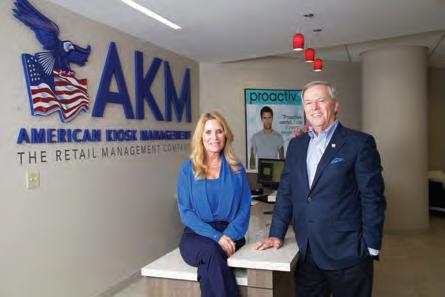
My wife, Linda, was instrumental in our extraordinary rise. I’m a businessman - I know the ins and outs of that world but Linda KNOWS retail.
When Linda came onboard, we had 6 carts. Our weekly sales totals jumped from $29,380 to $36,267 in the first week of her joining. Within 6 months Linda launched an additional 35 carts, in just as many locations. Exactly nine years later, on the exact same date, the weekly sales growth was from $29,380 to $2,021,240!
We agreed on a simple strategy: Go like hell. Pause. Then Clean up the messes. Then go like hell again and again and again.
Within less than a decade, Linda led AKM to amass over 400 staffed locations, 1800 employees and 800 automated stores throughout North America, Australia, and New Zealand. She also created a unique hands-on training program that resulted in frontline sales of over $1.7 billion. That’s a 6,900% increase in less than 15 years.
Look at the statistics; 42 million employees (about twice the population of New York) left their jobs voluntarily in 2021…an unexpected consequence of COVID19 restrictions. Out of this mass exodus, 30% did so to start a business —from digital startups to specialty retail products. The numbers are speaking to us
loud and clear that people want to be their own boss.
But here’s the problem; not everyone is built to be an entrepreneur. Are you absolutely convinced, without reservation, that you have what it takes to become an entrepreneur? There may be months with zero income but plenty of expenses. Do you have the fortitude to plow through? Do you understand marketing?
Can you sell your products from a website or a physical retail location alone? Or will you need both?
It’s important to understand the opportunities and the challenges. Forty-five percent of new businesses fail within the first 5 years. How do you increase your odds for success?
Find a mentor; someone with experience who has done extraordinarily well in the business world. Ask them or hire them to guide you and mentor you. May I also suggest one should find a spiritual mentor as well. Both can guide you through the tough times.
You and Linda added on automation. What can you say about keeping up with technology?
Technology offers incredible reach. AKM embraced that at once. We included a digital customer loyalty program along with vending machines to guarantee a 24/7 sales cycle.
Like I said, “Go like hell. Pause. Then clean up the messes.” If it’s technology that helps you go like hell, then embrace it, but don’t rely on it 100% of the time. You just might need a storefront or a POP-UP display for that extra bump. Just adapt.
You’ve had dozens of failed ventures in your lifetime. Any advice on overcoming and moving on?
First, have the attitude that this is only temporary. Don’t wallow in failure. Failure is never final. Period.
Secondly, be honest about your own mistakes; they are a curriculum for learning.
better next time.
If you need some business training, or need to hire a rain maker, go after it. Whatever you lack will show up in your business, guaranteed.
Being an entrepreneur will bring out the best in you, but only if you are willing to figure out what worked and what didn’t and have the courage to accept that you might be the bottleneck.
I am impressed with the caliber of people who have endorsed your book Max. Your book has been endorsed by some serious people.
It is humbling and unexpected. The endorsements from everyday people who have written to me have been outstanding and bring a tear of gratitude to my eye. They really enjoyed my journey, and the lessons learned along the way. I believe every entrepreneur needs to hear that they can make and here’s the “How To” book on the subject.
What inspired you to write The Harder I Fall, The Higher I Bounce?
I'd been thinking it was time to share the knowledge and experience over the years. I'd been told I was a pretty decent writer, so I sat down and started. I never really thought of turning it into a book but it took on a life of its own.
What manifested is really a business memoir filled with humorous stories that I hope will be used as a teaching tool for future generations of entrepreneurs and business professionals.
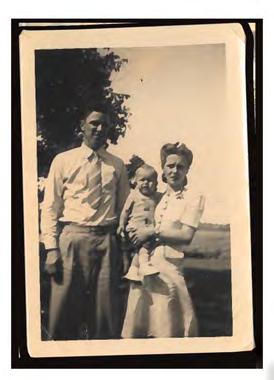
were front and center rather than a steady stream of success stories.
And there you have it my friends. From the son of a sharecropper, to decorated Vietnam Veteran, to building a billion dollar company, to being awarded The United States Air Force Academy Distinguished Graduate Award, Max James is an extraordinary interview to say the least, and I am honored to know him.

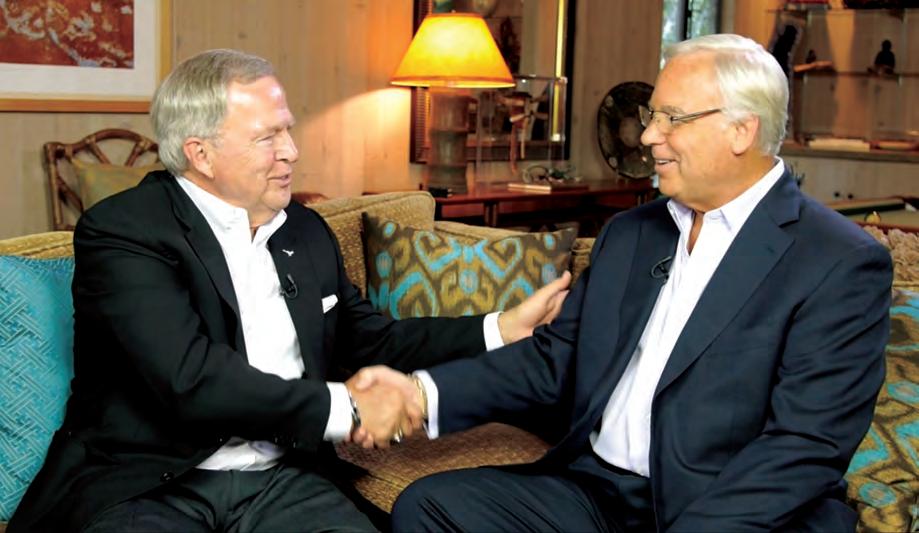
Pick up a copy of his book, The Harder I Fall, The Higher I Bounce, at Amazon, Barnes and Noble, and most bookstores, and reach out to him at MaxJamesAuthor.com.

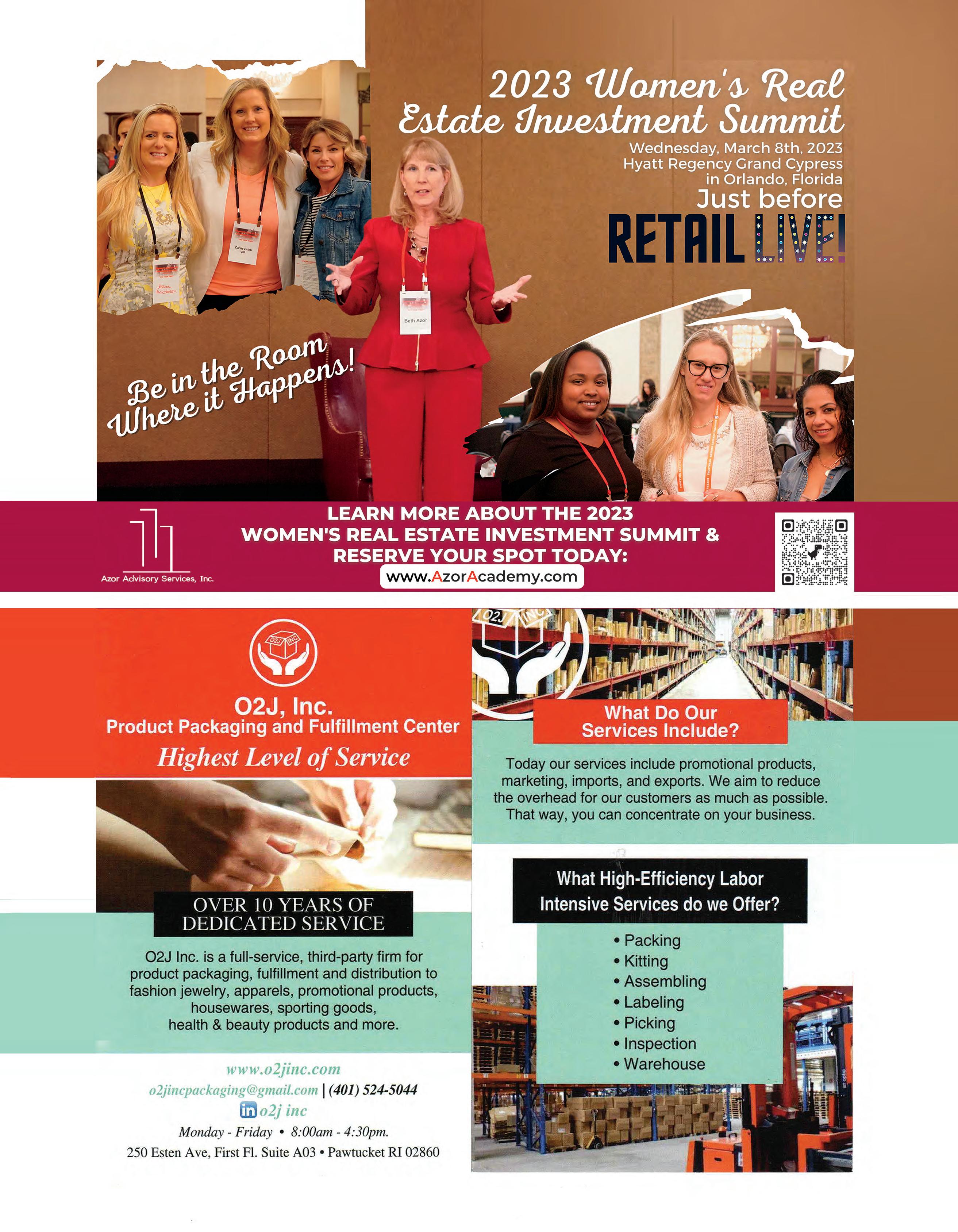



Real Estate is a business where fortunes were made by those with the best gut instincts. Over the last 30 years better data, smarter experts and clever tech helped real estate mature into a more respectable industry. This evolution helped create the delusion of a predictable future. A decade of ‘Black Swan’ events from a great recession to a pandemic and now war are humbling reminders that the future may not cooperate.
My assumptions of career predictability were shattered early on when my graduation from college coincided with economic recession. This taught me to embrace change and seek opportunity in disruption. In hindsight, my career journey has been a masterclass in the ‘art of the pivot’. Unplanned course changes never imagined as a fresh-faced architecture graduate make sense now as dots connect in the rear-view mirror. We are all shaped by events, opportunities, failure, and success. Looking back over almost 40 years my curious career twists now seem ideal preparation for the adventure ahead.
So where has this journey led and why? Rapid social, economic, and technological changes have disrupted the use and purpose of place.
City and industry leaders need bold new thinking to build a better future. Together with friends and former colleagues, last year I cofounded a unique, new industry platform, urbanOvation
We were inspired by four things:
• ‘Paradigm Shift’ and ‘Tipping Point’ are woefully inadequate descriptions of the current state of the real estate industry. Donald Rumsfeld’s ‘unknown unknowns’ will dominate the foreseeable future. We need a better crystal ball!
• As Winston Churchill famously said, “never waste a good crisis”! Perfect storms create unique opportunities. We are on the threshold of great innovation in the conception and use of place. How can we make the most of it?
• Silos that separated uses, asset classes and disciplines and made design, investment, and management of real estate simpler, are crumbling. The industry needs a place that encourages collaboration between all built environment stakeholders!
urbanOvation was created to share insights, to bring expertise together, to solve urban challenges and create new opportunities. We began in the early days of Covid with weekly ‘Reality Check’ online gatherings of 10 -15 smart people from across borders, industries, sectors, and disciplines for provocative, insightful, and often therapeutic conversations.
Over 1,000 people from 35 counties have since joined calls, workshops, study tours and roundtables showcasing the value of diverse perspectives, asking better questions, resulting in better insights, answers, and solutions.
The perfect storm has led organizations to shed the very talent they need to survive. As their problems grow and new opportunities emerge, they need fresh, creative thinking. The many talented people reinventing themselves (yes, pivoting!) to become independent innovators and problem solvers need a place to collaborate and extend their reach, urbanOvation is that place.
The ‘Ovation’ in our name was derived from innovation but also to Celebrate place in an increasingly virtual world. Technology is a tool that can help create better places.
Rediscovering the ‘art’ needed to create great places is essential. Join us on a journey to bring the two together to build a better urban future!
